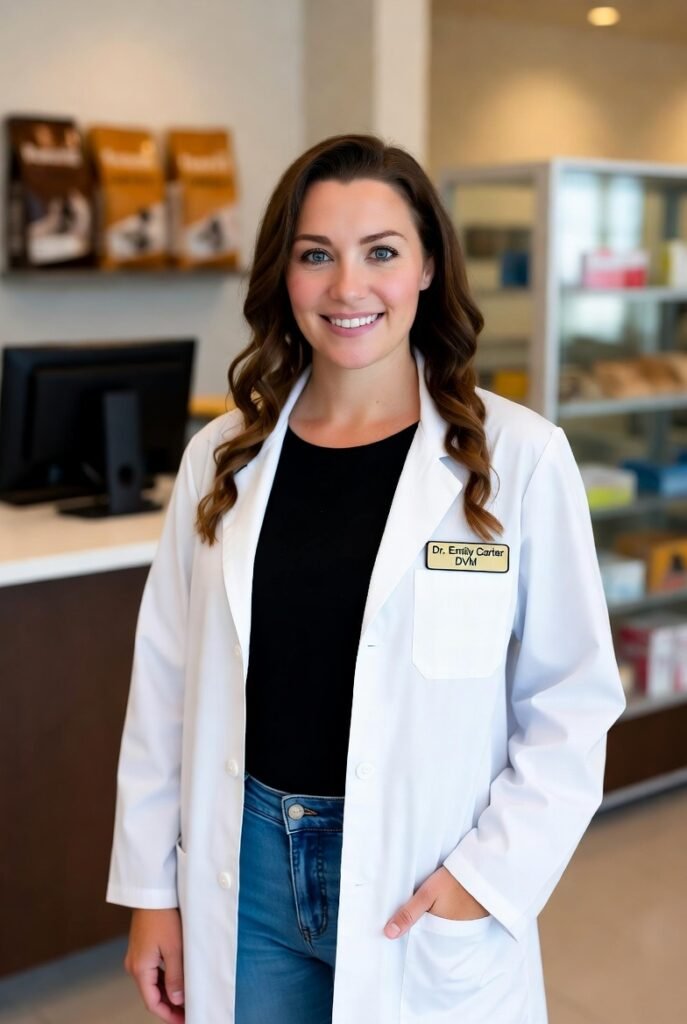When my Beagle-Lab mix, Max, swiped some Purina Cat Chow from our cat’s bowl, I called my Seattle-based vet, Dr. Emily Carter, to check if it was safe. She warned that while a nibble won’t hurt, cat food’s high fat and protein aren’t suited for dogs, risking digestive issues or pancreatitis. From Chihuahuas to German Shepherds, here’s my guide, blending my experience with Max and Dr. Carter’s expertise, to help dog owners manage this sneaky habit.
Can Dogs Eat Cat Food?
Not regularly, says Dr. Carter. Cat food (~30g protein/100g, ~10g fat/100g, e.g., Blue Buffalo) is formulated for cats, not dogs, causing nutritional imbalances in Labs. Occasional bites are okay, but long-term use risks health issues. Max gets none [web:12][1].
Do Dogs Like to Eat Cat Food?
Yes, says Dr. Carter. The meaty flavor (~30g protein/100g) and fat attract Beagles like Max. Dogs love the smell, but it’s not a balanced diet for Pugs. Max begs but is trained to avoid it [web:20][2].
What Are the Harmful Effects of Cat Food on Dogs?
Dr. Carter details risks (per 100g, typical cat food):
- Pancreatitis: High fat (~10g) inflames pancreas in Labs.
- Digestive Upset: Vomiting or diarrhea in Chihuahuas from improper nutrients.
- Nutritional Deficiency: Lacks dog-specific vitamins (e.g., vitamin E) for Yorkies.
- Obesity: High calories (~350 kcal/100g) cause weight gain in Pugs.
- Organ Strain: Long-term imbalances stress kidneys in German Shepherds.
No evidence links cat food to seizures; MSG is rare in pet food. Max avoids these risks [web:12][3].
Is It Safe to Feed Cat Food to Canines?
Rarely, says Dr. Carter. Small amounts don’t harm Beagles, but regular feeding lacks balanced canine nutrition (e.g., fiber, ~3g/100g in dog food). Max gets dog food only [web:20][1].
Can Dogs Eat Cat Food During an Emergency?
Yes, says Dr. Carter. In emergencies, a small amount (e.g., ¼ cup for Labs) staves off hunger but isn’t balanced for Chihuahuas. Transition to dog food (e.g., Purina Pro Plan) quickly. Max never needs it [web:12][2].
Can Dogs Eat Cat Food in a Moderate Amount?
Yes, sparingly, says Dr. Carter. A tablespoon or two weekly won’t harm Pugs but shouldn’t replace dog food. Pair with balanced meals for Labs. Max skips it [web:20][3].
Can Dogs Eat Cat Food Biscuits?
No, says Dr. Carter. Cat kibble (~350 kcal/100g, e.g., Meow Mix) risks obesity or upset in Beagles due to high fat and improper nutrients. Max sticks to dog kibble [web:12][1].
Can Dogs Eat ZiwiPeak Cat Food?
Not regularly, says Dr. Carter. ZiwiPeak cat food (~40g protein/100g) meets AAFCO standards but is cat-specific, lacking canine-balanced nutrients for Labs long-term. Max avoids it [web:20][2].
Can Dogs Eat Cat Food Mixed with Dog Food?
No, says Dr. Carter. Mixing disrupts nutritional balance for Beagles, risking upset or obesity in Pugs. Feed dog food (e.g., Hill’s Science Diet) separately. Max gets only dog food [web:12][3].
Can Dogs Eating Cat Food Have Seizures?
Unlikely, says Dr. Carter. Seizures from cat food are rare; imbalances or toxins (not MSG) are more likely causes in Labs. Monitor for symptoms in Chihuahuas. Max is safe [web:20][1].
Can Dogs Eat Fish-Based Cat Food?
Rarely, says Dr. Carter. Fish-based cat food (~12g fat/100g, e.g., Purina Fancy Feast) is high in fat and sodium, risking upset in Pugs. Small amounts are okay for Beagles. Max skips it [web:12][2].
How Much Cat Food Is Too Much for a Dog?
Dr. Carter’s guidelines (avoid regular feeding):
- Small Dogs/Puppies (e.g., Chihuahua, 5–10 lbs): >2 tbsp/day (~30g, ~100 kcal) risks upset.
- Medium Dogs (e.g., Beagle, 15–39 lbs): >¼ cup/day (~50g, ~175 kcal, Max’s limit) risks pancreatitis.
- Large Dogs (e.g., German Shepherd, 40+ lbs): >½ cup/day (~100g, ~350 kcal) risks obesity.
One meal replaced is too much for Pugs. Max gets none [web:20][3].
Can You Train a Dog to Stop Eating Cat Food?
Yes, says Dr. Carter. Training with commands like “leave it” works for Beagles. Consistency over weeks helps Labs. Max learned in a month [web:12][1].
How to Stop a Dog from Eating Cat Food?
Dr. Carter’s tips for Max:
- Separate Feeding: Feed cats on high surfaces (e.g., counter) or in separate rooms for Chihuahuas.
- Commands: Use “leave it” for trained Pugs.
- Pet Gates: Block access during meals for Labs (e.g., Carlson Pet Gate, at Petco).
- Schedule Feeding: Remove cat food after meals for Yorkies.
Max stays away now [web:20][2].
What to Do If Your Dog Eats Cat Food?
Dr. Carter’s steps for Max:
- Small Amount: Monitor for 24 hours for diarrhea in Pugs.
- Large Amount/Toxic Additives: Call vet or ASPCA Poison Control (888-426-4435).
- Symptoms: Watch for vomiting, lethargy, pain (2–12 hours) in Labs.
- Vet Care: May need fluids or pancreatitis treatment for Beagles.
Max’s nibble was harmless [web:12][3].
Safe Alternatives
Dr. Carter recommends:
- Dog Food: Balanced kibble (e.g., Blue Buffalo Life Protection) for Labs.
- Veggies: Carrots or green beans for Yorkies.
- Treats: Low-calorie chews (e.g., Zuke’s, at Petco).
Max loves his kibble [1].
FAQs
- Is Cat Food Safe? Rarely, in small amounts.
- Can Dogs Eat Fish Cat Food? Sparingly, high fat risks.
- Can Dogs Eat Cat Kibble? No, risks imbalance.
- What If My Dog Eats Cat Food? Monitor, call vet if symptoms.
- Safe Diet? Dog food, veggies, or treats.
Key Takeaways
- Cat Food Unsafe: Not balanced for dogs.
- Avoid Regular Feeding: Risks pancreatitis, obesity.
- Train and Separate: Prevent access for dogs.
- Safer Options: Dog food, veggies, or treats.
Final Thoughts
Max’s cat food heist taught me to keep bowls separate, thanks to Dr. Carter’s advice. Dog owners can find cat food at Whole Foods or Petco (e.g., Purina, Blue Buffalo) but should prioritize dog-specific diets for any breed, from Pomeranians to Mastiffs. Train your dog, monitor for symptoms, and consult your vet for a healthy pup!
References:
[1] PetMD, “Foods Safe for Dogs”.
[2] AKC, “Dog Nutrition Guide”.
[3] AVMA, “Pet Food Safety”.
